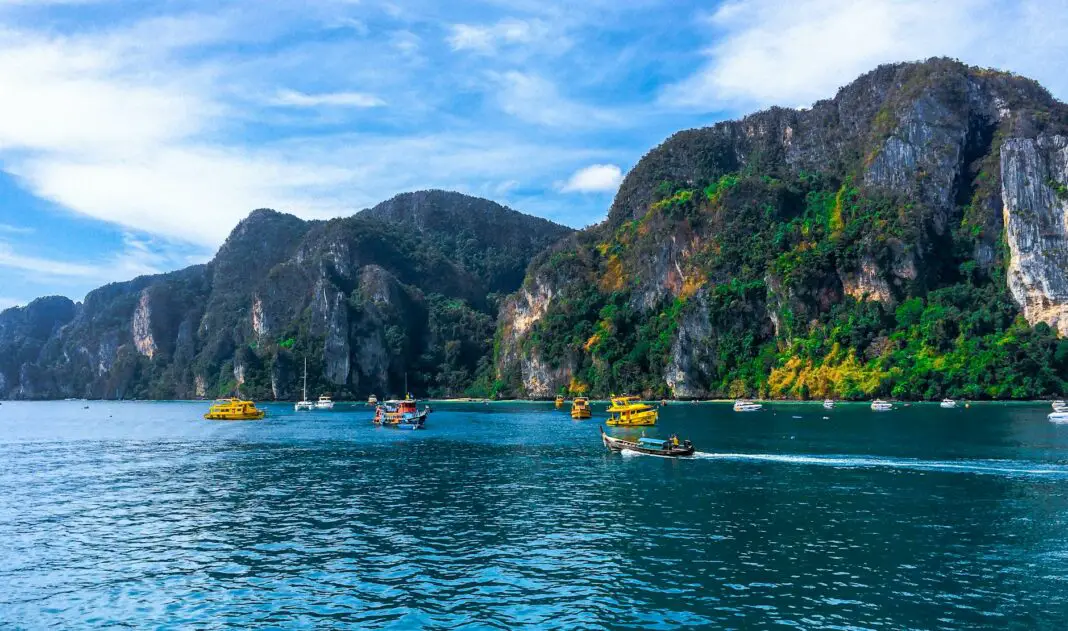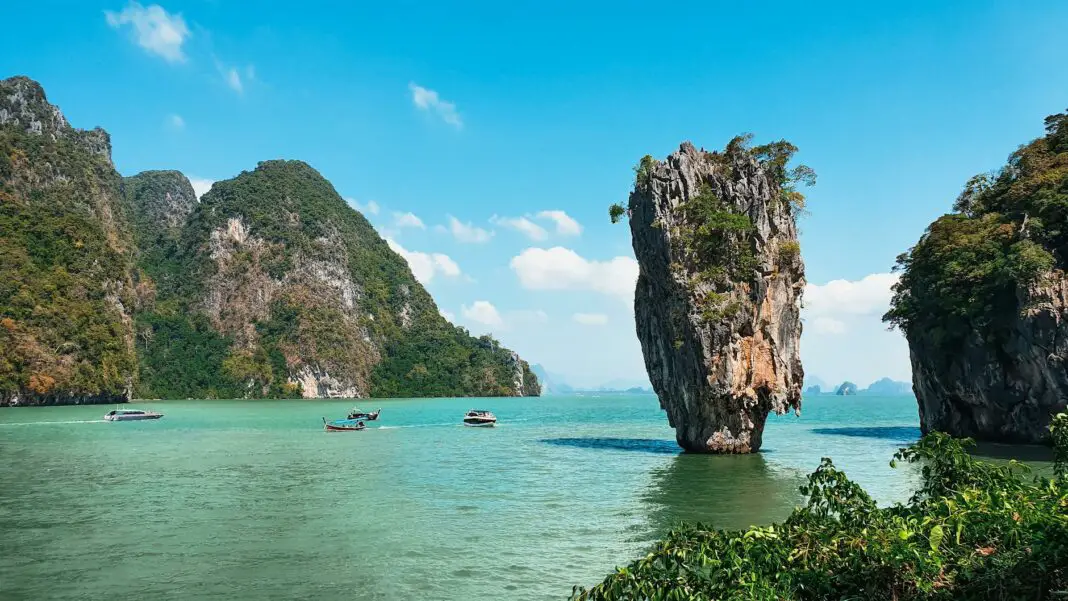Picture a sanctuary where azure waters cradle vibrant marine life and stunning coral reefs beckon your explorations. Thailand is more than a travel destination; it is a treasure trove for anyone passionate about marine conservation. This blog post delves into why Thailand stands out as the ultimate paradise for marine conservation enthusiasts. As we explore its pristine beaches, diverse ecosystems, and commitment to sustainable practices, you will discover compelling reasons to pack your bags and join the movement towards marine life preservation.
From the striking landscapes of its national marine parks to the thriving underwater communities, Thailand offers unique experiences that are both enchanting and educational. This post aims to provide insights into the ecological significance of Thailand’s waters, elaborate on the initiatives underway to protect its marine assets, and inspire you to contribute towards a sustainable future for these beautiful ecosystems.
Table of Contents
- Exploring the Marine Ecosystems of Thailand
- Thailand’s Commitment to Marine Conservation
- Best Places for Marine Conservation Lovers
- Actionable Insights for Marine Conservation
- Why Thailand is the Ultimate Paradise for Marine Conservation Lovers
- Join the Cause: How You Can Make a Difference
- Frequently Asked Questions
Exploring the Marine Ecosystems of Thailand
Thailand’s marine ecosystems are robust and diverse, ranging from extensive coral reefs in the Andaman Sea to the serene mangroves of the Gulf of Thailand. These ecosystems host a myriad of species, making it an integral hub for marine biodiversity. For instance, you can swim alongside majestic sea turtles or snorkel above kaleidoscopic coral gardens. Additionally, the country’s national marine parks serve as protected areas where these ecosystems can thrive, making them essential for both conservation and tourism.
The unique geographical features of Thailand, including its numerous islands such as Koh Phi Phi and Koh Tao, provide ideal habitats for underwater ecosystems. The structural variety of reefs not only supports local wildlife but also offers unique diving experiences that attract enthusiasts from around the globe. As you explore these pristine waters, you will discover dramatic underwater landscapes that serve as a reminder of the fragility and beauty of marine life.
Thailand’s Commitment to Marine Conservation
In recent years, Thailand has placed greater emphasis on marine conservation initiatives, acknowledging the necessity of safeguarding its irreplaceable aquatic treasures. Significant strides have been made through government programs aimed at enforcing stricter regulations on fishing practices, protecting sensitive habitats, and encouraging sustainable tourism. Notably, the Thai government has identified critical marine areas and established a multitude of marine parks, ensuring these underwater sanctuaries are preserved for future generations.
Moreover, partnerships between local communities, NGOs, and international organizations have flourished, creating educational campaigns and community-led conservation projects. These initiatives not only raise awareness of the issues faced by marine ecosystems but also foster a sense of responsibility among residents and tourists alike. By actively engaging in conservation efforts, Thailand is setting a global example, proving that collective action can result in meaningful change.
Best Places for Marine Conservation Lovers
When it comes to discovering the best spots for marine conservation lovers in Thailand, several areas emerge as must-see destinations. Explore the stunning Similan Islands National Park, where crystal-clear waters teem with life, or dive into the depths of the Surin Islands, renowned for their vibrant coral reefs and rare marine species. These locations offer unparalleled opportunities for snorkeling and diving while becoming a part of the conservation efforts that protect them.
Another hidden gem is Koh Tao, a small island famous for its dedicated training centers that focus on responsible diving practices. This island not only captivates with its charm but also inspires visitors to adopt eco-friendly habits during their underwater explorations. Attractions like these make Thailand a beacon of hope for marine conservation efforts, proving that beauty and responsibility can coexist harmoniously.
Actionable Insights for Marine Conservation
While visiting Thailand, your involvement can extend beyond simply relishing its natural wonders. Consider participating in local conservation programs that focus on coral restoration or beach clean-up initiatives. Engage with local communities by supporting eco-friendly tours or purchasing sustainable products, which contribute directly to the local economy while promoting environmentally conscious habits. These small actions can have a significant impact on preserving Thailand’s marine heritage.
Moreover, educating yourself and others about the importance of marine conservation can amplify efforts. Sharing your experiences and insights on social media platforms helps raise awareness and encourages more visitors to respect and protect the oceans. When it comes to conservation, collective responsibility can drive substantial change, and your voice can contribute to this crucial goal.
Why Thailand is the Ultimate Paradise for Marine Conservation Lovers
The allure of Thailand as a destination for marine conservation enthusiasts is undeniable. With its enchanting aquatic life, breathtaking underwater ecosystems, and forward-thinking conservation efforts, Thailand not only attracts divers and beach lovers but also advocates for sustainability. This country is a living example that beauty and ecological responsibility can intertwine.
Thailand’s strategic approach to marine conservation sets it apart as a leader in the region. The continued development of marine parks, educational outreach, and initiatives focused on restoring damaged ecosystems signify a commitment to a sustainable future. By prioritizing the health of its oceans, Thailand demonstrates that the charm of its destination can significantly benefit from preserving nature for all to enjoy.
Join the Cause: How You Can Make a Difference
Ultimately, your journey to Thailand can transcend traditional travel experiences. It is about making a difference while immersing oneself in the beauty of nature. Consider planning your trip around volunteering opportunities, certification courses in sustainable diving, or workshops led by conservationists. This way, you not only indulge in remarkable adventures but also become part of the solution to pressing marine issues.
Your actions matter. By choosing to explore responsibly, supporting local conservation efforts, and educating yourself and others, you can make a lasting impact. Every visit contributes to the collective voice advocating for healthier oceans and more resilient ecosystems, reinforcing the idea that every traveler can play a role in safeguarding the planet.
Frequently Asked Questions
Is it safe to dive in Thailand’s waters?
Yes, diving in Thailand is generally considered safe. The diving operators are regulated, and there are numerous certifications available for divers of all levels.
What should I do if I see marine life in distress?
If you encounter marine life that appears to be in distress, contact local conservation organizations or regulatory bodies immediately to report the situation.
How can I make my travels more eco-friendly while in Thailand?
Opt for local transportation, choose accommodations with sustainable practices, and participate in eco-friendly tours to minimize your environmental footprint.
Empower Wildlife Through Your Actions
The beauty of Thailand’s marine environment is not just meant to be admired but also protected. Every traveler has the power to influence change through conscious decisions. Embrace the potential for your visit to Thailand to extend beyond relaxation and adventure—transform it into a mission for marine conservation, supporting the vibrant ecosystems that make this nation a true paradise for marine conservation lovers.
Image Credit: Pexels





